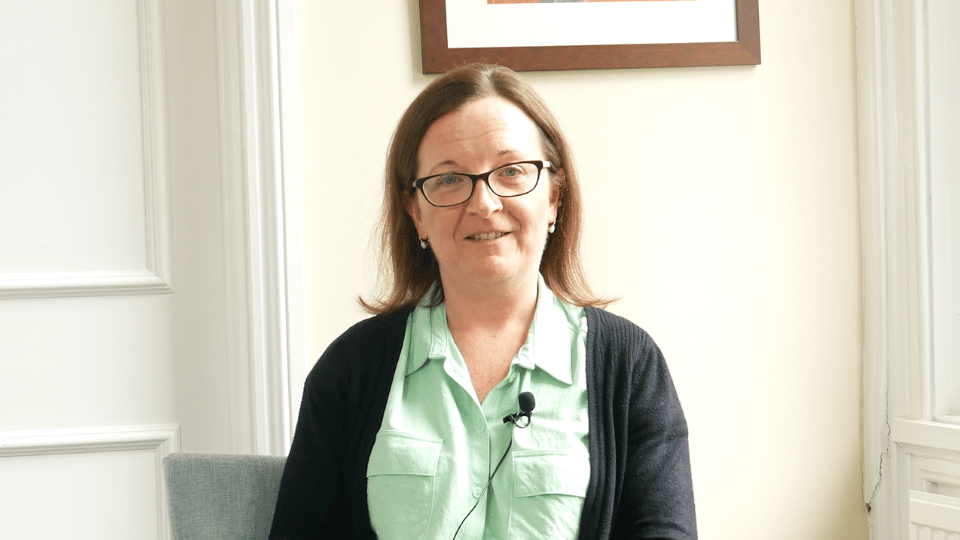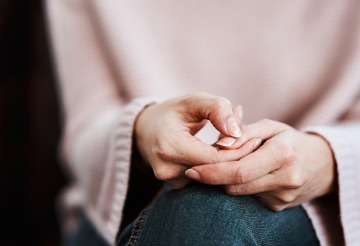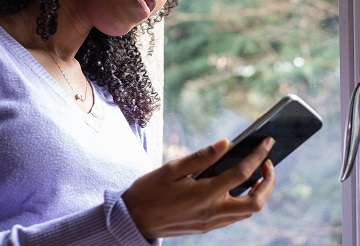


If you're worried about a family member or friend, we have outlined how to help someone with a gambling addiction.
Taking steps to help them sooner rather than later is the best approach. Opening up and starting with an honest, non-confrontational conversation is paramount to getting them started on the road to recovery, and making sure that the illness no longer has such a devastating impact.
What is a gambling addiction?
It's important for family and friends to understand compulsive gambling if they want to help someone with a gambling addiction.
Recognising that the person will have a continuous urge to gamble is crucial. This urge will often be so strong, that everything else within their life now comes second. Their work and education, relationships, finances and health will all be taking a back seat due to the incredible pull of gambling.
It's also important to recognise that it's something they're currently powerless over. While they may have previously made promises about stopping, deleting gambling apps or blocking themselves off websites, gambling is likely now something they can’t simply stop without professional help.
Encourage professional treatment for gambling addiction
When you're looking to help someone with a gambling addiction, one of the most important things you can do is encourage them to get professional treatment for their gambling symptoms.
Understandably, you may be concerned about having this conversation, fearing that the person will become angry, deny they have a problem or retreat further into their addiction. Here are a few tips to help you have an effective conversation:
- Talk in private with no distractions when both of you are calm - this will encourage them to think clearly and listen to what you have to say
- Express the impact that their gambling is having on you and other people, without placing blame - the person may not recognise the impact that their gambling has on other people, so explain to them how their behaviour is affecting the people they're closest to
- Remain calm and compassionate – they're likely to be ashamed of their problem. Rather than chastising or blaming them, which could cause them to put up barriers, explain that you’re concerned as you’ve noticed they aren’t doing activities they once enjoyed, seem to owe people a lot of money or always seem short of cash
- Actively listen to them - give them the chance to talk. If they become angry or deny they have a problem, ask them to have a think about their gambling and let them know how you want to help them
- Focus on the fixes rather than problems - discussing solutions and possible avenues of support can help to show that you care and are willing to work with them. Doing so can also help them to see that there's a way out of their gambling addiction
- Be prepared to be met by a range of emotions - while some people are instantly relieved to be able to open up about their gambling addiction, others may become angry and dismissive. Preparing for these emotions can give you the opportunity to think about how you'll react
- Be patient - give the person time. Having these conversations can often act as an initial seed that causes a person to reflect on their gambling, see that they're not alone and recognise there are ways to get help. If they aren’t ready to talk about it just yet, remind them that you're always there to talk to and will work with them to get control of the situation
Get a free gambling addiction assessment from a Priory rehab clinic
When you're talking with the person about possible support for their gambling addiction, you may want to mention the free, no obligation addiction assessment* they can receive at a Priory rehab clinic.
The assessment gives the person the opportunity to see whether or not they do have a problem and need help. Visiting a rehab clinic for the assessment also gives them a chance to meet the team who'll help them to get their life back on track.
From your initial phone call, our team work as efficiently as possible to make sure that the process from assessment to treatment is smooth and discreet, helping the person get the support they need as swiftly as possible.
Make sure you get support for yourself
While figuring out how to help someone with a gambling addiction, it's important to spend time thinking about how you can safeguard your own health and wellbeing.
Firstly, make sure you look after the basics. Maintain a good sleep routine, eat well and set time aside for yourself. Living with someone who's struggling with an addiction can be incredibly draining, so dedicate time and energy to keeping yourself well.
Also keep your social circle strong. Keep in contact with family and friends, and make sure you have a handful of trusted people who you can go to when you want to talk about the gambling addiction. Trying to stay silent can be incredibly isolative, and have a damaging effect on your own health and wellbeing.
You may also want to make use of groups like Gam-anon, which have been set up to help wives, husbands, partners, siblings, children or friends of compulsive gamblers. Going to the meetings can help you to recognise that you're not alone, and provide you with the space to hear others’ experiences, get advice and share your own thoughts and feelings.
*People with a dual diagnosis may need to be assessed by a consultant psychiatrist which is a chargeable appointment.



